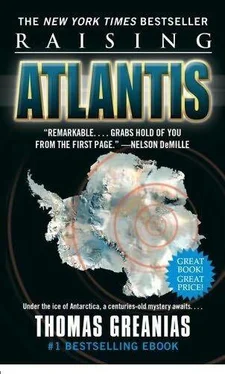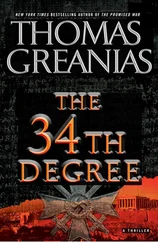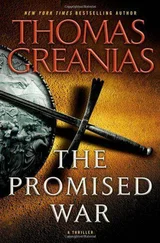But damn if it didn’t feel good to be in charge again, he thought, catching a dim reflection of himself in the reinforced plexiglass window. Even now, in his sixties, he still cut a commanding figure. Most of the baby faces on the base had no idea who he used to be way back when. Or, rather, who he was supposed to have been.
Griffin Yeats should have been the first man on Mars.
The Gemini and Apollo space veteran had been tapped for the job in 1968. The Mars shuttle, as originally formulated by rocket pioneer Wernher von Braun in 1953 and later revised by NASA planners, was scheduled to depart the American space station Freedom on November 12, 1981, reach the red planet on August 9, 1982, and return to Earth one year later.
If only politics were as predictable as the orbit of the planets.
By 1969 the war in Vietnam had sapped the federal budget, and the moon landing had temporarily satiated Americans’ appetite for space exploration. With congressional opposition to the mission mounting, President Nixon rejected the Mars mission and space station program. Only the space shuttle would get the green light. It was a catastrophic decision that set the Mars program back for decades, left the space shuttle all dressed up with no place to go, and cast a rudderless NASA adrift in the political backwaters of Washington without a clear vision.
It also killed Yeats’s dreams of greatness.
The desk console buzzed and broke Yeats’s trance. It was O’Dell in the command center. “Sir, we think we’ve picked them up on radar. Twenty minutes to landing.”
“Where are we with the runway?”
“Clearing it now, sir, but the storm-”
“No excuses, Colonel. I’ll be there in a minute. You better have an update.”
Yeats took another shot of whiskey and stared outside. At the time Nixon decided to scrap the Mars mission, Yeats was here in Antarctica, in the middle of a forty-day stay in a habitat specifically designed to simulate the first Martian landing. They were a crew of four supported by two Mars landing modules, a nuclear power plant, and a rover for exploring the surrounding territory.
Antarctica was as cold as Mars, and nearly as windy. Its snowstorms packed the same kind of punch as Martian dust storms. Most of all, the continent was almost as remote as the red planet, and in utter isolation a crew member’s true character would reveal itself.
For Yeats it was an experience that would forever change his life, in ways he never imagined. Four men walked into that mission. Only one limped out alive. But to what? To roam the subbasement corridors of the Pentagon as a creaky relic of the old space program? To raise an orphaned boy? To lose his wife and daughters as a result? Everything had been taken away from him.
Today he was taking it back.
Discovery Plus Twenty-Three Days
It was freezing in the fuselage of the C-141 Starlifter transport when Conrad woke with a start. Groggy and sore, he rubbed his eyes. He was strapped in with two dozen Special Forces commandos sporting polar freezer suits and insulated M-16s.
He felt another jolt. For most of the flight they had soared through clear skies and over endless white. But now they were floating in some murky soup, and the turbulence grew worse by the second. The giant cargo containers in the rear shifted, straining their creaky tie downs with each shock.
Conrad glanced at his multi-sensor GPS watch, which used a network of twenty-seven satellites to pinpoint his location anywhere on the globe and was accurate to within a hundred feet. But the past sixteen hours aboard various military craft must have chewed up the lithium batteries, because the longitudinal and latitudinal display was blanked out. The built-in compass, however, spun wildly-NE, SE, SW, NW. They must be nearing a polar region, he realized, most likely the South Pole.
He turned to the stone-faced commando sitting next to him and shouted above the whine of the turboprop engines, “I thought military personnel were banned from Antarctica.”
The commando checked his M-16, stared ahead, and replied, “What military personnel, sir?”
Conrad groaned. This was precisely the sort of bullshit he had to put up with his entire life as the son of Griffin Yeats, a washed-out NASA astronaut who had somehow managed to march through the shadowy corridors of power at the Pentagon to become an Air Force general. Yeats firmly believed that truth should be divulged strictly on a “need to know” basis, starting with the circumstances surrounding Conrad’s birth.
According to Yeats’s official version of events, Conrad was allegedly the product of a one-night tryst between a Captain Rick Conrad and a nameless Daytona Beach stripper. When Captain Conrad died in Antarctica during a training mission, the woman dropped off their bastard child at the doorstep of the Cape Canaveral infirmary. A short time later she herself died of a drug overdose. NASA, eager to maintain the squeaky clean image of its astronauts, was only too eager to cut the red tape and let Captain Conrad’s commanding officer and best friend, Major Griffin Yeats, adopt him.
Growing up, however, Conrad began to doubt the veracity of Yeats’s story. His stepmother, Denise, certainly did. From the beginning she suspected that Yeats was Conrad’s biological father and that he used Captain Conrad’s death as a convenient cover to explain the birth of his own illegitimate son. No wonder she divorced Yeats when Conrad was eight and moved away with her daughters, ages eleven and nine, the only friends Conrad had.
Finally, after years of base hopping and misery, Conrad had become enough of a rebel to have been tossed out of several schools and to confront Yeats. Not only did Yeats deny everything, but he refused to use his government contacts to help Conrad decisively identify his biological parents. That alone gave Conrad all the reason he needed to hate the man.
But by then it was obvious that General Yeats didn’t really seem to care what Conrad or anybody else thought of him. Despite his failed career as an astronaut, Yeats went from one promotion to another until he finally got his star, and with it command of the Pentagon’s mysterious Defense Advanced Research Projects Agency, or DARPA. Thanks to the financial backing of the Reagan administration throughout the 1980s, Yeats and his team of extremist military planners invented the Internet, the global positioning system, stealth technology, and the computer mouse, among “other things.”
This mission, Conrad concluded, no doubt fell into the latter category of “other things.” But what, specifically? Conrad had long suspected that a fabulous discovery lay under the ice in Antarctica. After all, East Antarctica was an ancient continent and at one time tropical. Yeats had obviously found something and needed him. Or maybe this was merely a sorry attempt at some sort of father-son reconciliation.
Two big turbo jolts brought Conrad back to the freezing fuselage of the C-141. Without asking permission, he unbuckled his strap and stumbled toward the cockpit, grabbing an occasional strut in the fuselage for support.
The glass flight deck was deceptively bright and airy. Conrad could see nothing but white beyond the windshield. Lundstrom sat in the pilot’s seat, barking at his copilot and navigator. But the engines were whining so loudly that Conrad couldn’t catch what he said.
Conrad shouted, “Could I at least see this phenomenal discovery before you kill me?”
Lundstrom definitely looked annoyed when he glanced back at him over his shoulder. “Get back to your seat, Doctor Yeats. Everything’s under control.”
But the pilot’s eyes betrayed his anxiety, and suddenly Conrad knew where he had seen him before. Until four years ago, Conrad recalled, Lundstrom had been a space shuttle commander. His leather glove, now tightly gripped around the steering column, disguised a hand that had been badly burned and disfigured along with a third of his body in an explosion on the launch pad before his aborted third mission.
Читать дальше












